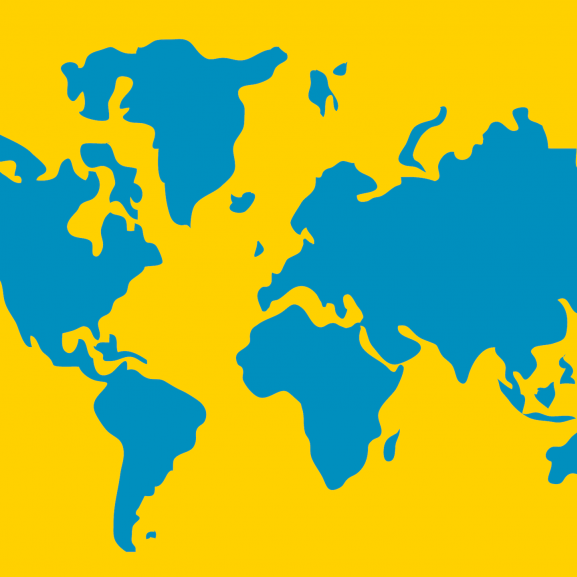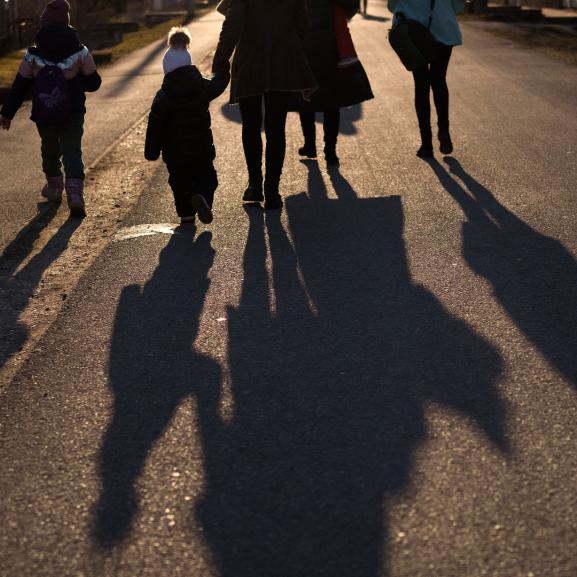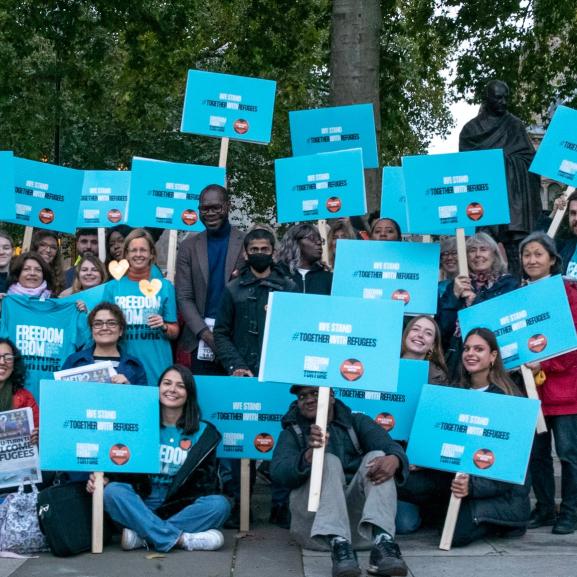"We have to let the world know what is happening" - Pauline's story
Pauline grew up in Democratic Republic of Congo (DRC), in a family similar to what many would recognise across the world, she had a mother, father and younger sister.
“My dad was a journalist, my mommy was a teacher. But she stopped because when you teach in Congo there is no good money. So she stopped and sold second-hand clothes as there was more money in that.”
Her father, like many of the middle-class population living in the DRC’s cities, felt frustrated at the opportunities that were available to ordinary Congolese people, despite the wealth flowing into the country from mining and minerals. Even with a good education and qualifications, he was unemployed.
In the Democratic Republic of Congo, being critical of the Government can carry a heavy price. As outlined in our new report, A Tool to Silence: Torture to Crush Dissent in the Democratic Republic of Congo, even low-level political activity can be enough to make you a target for repression. Pauline’s story is sadly one that demonstrates the horror of what can await people who dare criticise the regime and their families.
One day, Pauline’s father handed her some leaflets he had written and asked her to hand them out to passers-by on the street, which she did with her friend.
After a short while, the police arrived and began asking questions,
“Where did these come from?”
“Who gave them to you?”
As outlined in our new report, A Tool to Silence: Torture to Crush Dissent in the Democratic Republic of Congo, even low-level political activity can be enough to make you a target for repression.
Pauline’s friend panicked and told the police it was Pauline’s father. The police grabbed the leaflets, violently arrested them both and took them to a detention site in the city.
Pauline and her friend were badly beaten and raped repeatedly and violently that night.
“They were beating us. I was crying. All the night, they was grabbing my friend and me. One was coming, then another if they were tired, and then another.”
Sadly, this is common. Evidence gathered by Freedom from Torture found that rape is endemic in the detention system in the DRC. Most of those detained are raped on multiple occasions, by multiple perpetrators. The rapes take place in a context of absolute impunity.
Evidence gathered by Freedom from Torture found that rape is endemic in the detention system in the DRC.
Pauline’s torturers decided to take her to her family home to see the man responsible for the leaflets: her father. They made her knock on the door, as they knew he would answer to her. Then, they killed him in front of her eyes and then took her back to the detention site. There she was tortured and raped again. Her ordeal went on for three weeks until finally someone helped her escape and she fled the country.
Pauline’s story sadly bears resemblance to many of other people’s stories highlighted in A Tool to Silence. She was not a political activist herself. She was not a member of a political party and she had not been to rallies or protests. Handing out leaflets written by a family member was the extent of her activity.
Of the case-set of 74 people, twelve people were targeted for the real or perceived human rights or political actions of a family member.
Low-level political activity was reason enough for a number of people featured in A Tool to Silence to be detained and tortured by Congolese authorities. Of the case-set of 74 people, twelve people were targeted for the real or perceived human rights or political actions of a family member.
Though she was not an activist herself, Pauline says she was so aware of Congo’s problems that she knew handing out leaflets was important.
“They are killing people day and night in the Congo. Sometimes they put people in sacks and they put them in the river. Anyone against the government or Kabila they kill. Many Congolese leave because life in Congo is so bad, it is hard.”
Her association with her father and his criticism of the regime was enough for the police to commit the most brutal attacks against her family and friends. They intended to destroy Pauline’s life, and silence her, her father, and her family.
Despite this, Pauline has not been silenced. While rebuilding her life in the UK, she has overseen tremendous hardship but has found her voice through singing. Pauline hopes to one day be a care worker for the elderly too and is looking forward to starting vocational training. Pauline believes it is important to speak out with elections that have happened,
“We have to let the world know what is happening. Life in Congo is bad. The government are killing people. It must be stopped.”





